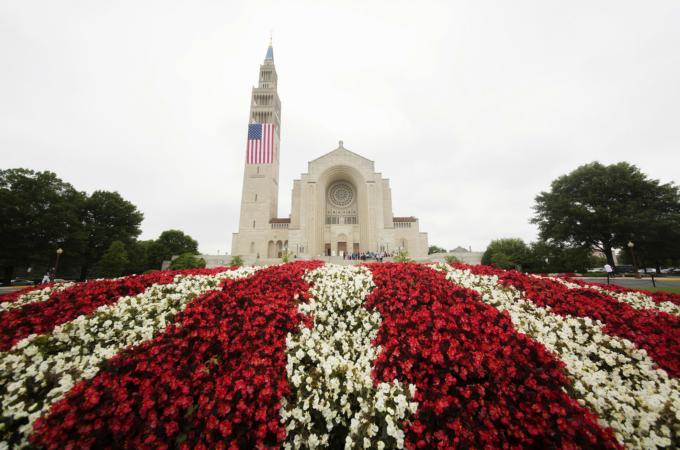Why Catholics should care about the First Amendment
The First Amendment to the U.S. Constitution, that "Congress shall make no law respecting an establishment of religion, or prohibiting the free exercise thereof, or abridging the freedom of speech, or of the press...," was enacted in 1791 as the first part of the Bill of Rights.
This was because at the time the Constitution was ratified, which established the framework and powers of our national government, it was felt that there needed to be an explicit declaration of rights that we the people reserved. Otherwise, the government could trample on them, as the British government had done, in establishing the Anglican Church at the expense of the Catholic Church and various Protestant denominations and others, and in treating any criticism of government as seditious and thus criminal libel.
I think it fair to acknowledge that, at the time, and indeed up until the Declaration on Religious Freedom in the last year of the Second Vatican Council in 1965, our Catholic Church was generally not in favor of religious freedom for non-Catholics, "freedom of religion for me, but not for thee," though it did teach that forced conversion was wrong.
Nor was the Church always a fan of freedom of speech. Blessed Pius IX's 1864 Syllabus of Errors, for example, taught that "the full power, given to all, of overtly and publicly manifesting any opinions whatsoever and thoughts, conduces more easily to corrupt the morals and the minds of the people."
And, of course, as a moral and religious matter, he had a point. But probably not a secular legal one. Islamic Sharia law, for example, which criminalizes both leaving Islam (a capital offense) and any criticism of the Koran and Mohammed as blasphemy, still has this pre-modern conception of freedom of religion and of speech.
And, of course, the Catholic Church in the United States, and its many institutional entities, like schools, hospitals and universities, have generally done well for themselves and the surrounding community under our liberal regime of freedom of religion and freedom of speech. Until today, that is, when anti-Christian and anti-Catholic ideas of the nature of marriage and family and the value of human life are in the ascendancy, and the ability of the Church to live and to teach what it believes is increasingly called into question.
A recent example of this is the Obama administration's war on the Little Sisters of the Poor, to try to get that good order of selfless nuns to compromise our beliefs about the impermissibility of contraception and abortion. It seemed like Trump's victory in the election would put an end to that, but recently the Trump Justice Department has continued the lawsuit. Increasingly, voices are raised questioning our strong American tradition of accommodating religious freedom.
There is likewise a renewed assault on freedom of speech, notably on college campuses. Recent incidents at Yale, Middlebury and the University of California at Berkeley, have cast into question whether speakers can raise controversial points of view in academic settings without provoking violence and event cancellation. The irony here is that Berkeley in the 1960s was the home of the Free Speech movement. It turns out that some liberals now think "Free speech for me, but not for thee." And conservative groups and speakers are now among the leading defenders of free speech. Fortunately, there are still principled defenders of free speech left, people like First Amendment lawyer Floyd Abrams, who just published a book entitled "The Soul of the First Amendment."
If people are to come to the truth, they need to do so freely. That is how God made us. With the disciples on the road to Emmaus, our Lord made as if to continue the journey without the disciples, because he wanted them to freely ask him to remain with them. He does not impose himself on others; he proposes. Religious freedom is important for everyone. So too is freedom of speech and of the press. These are the first of our freedoms spelled out in the Bill of Rights.
- Dwight G. Duncan is professor at UMass School of Law Dartmouth. He holds degrees in both civil and canon law.



















